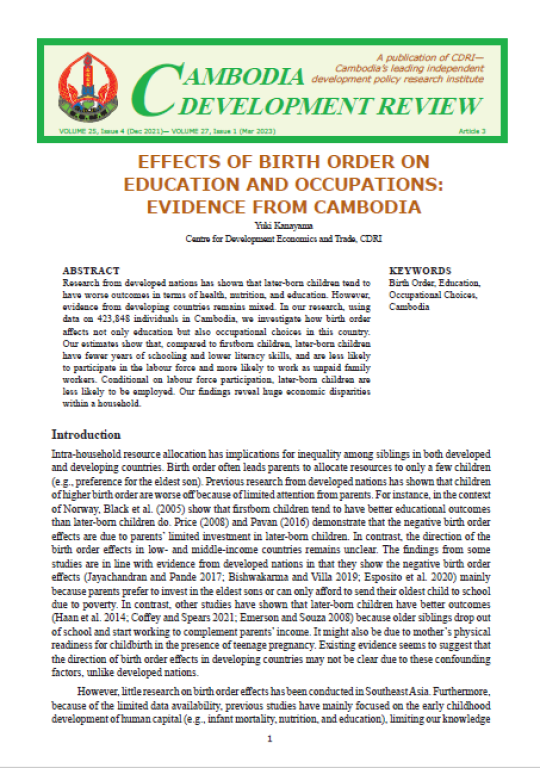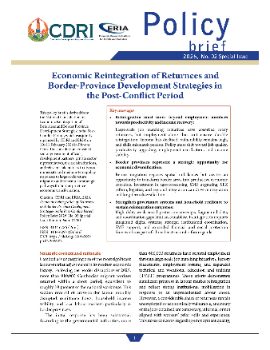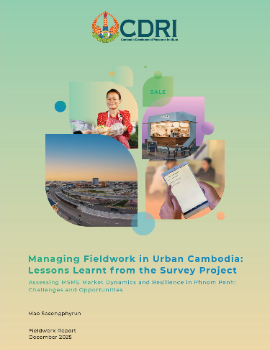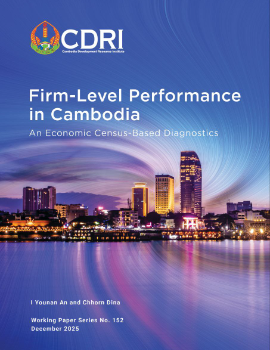Abstract/Summary
Research from developed nations has shown that later-born children tend to
have worse outcomes in terms of health, nutrition, and education. However,
evidence from developing countries remains mixed. In our research, using
data on 423,848 individuals in Cambodia, we investigate how birth order
affects not only education but also occupational choices in this country.
Our estimates show that, compared to firstborn children, later-born children
have fewer years of schooling and lower literacy skills, and are less likely
to participate in the labour force and more likely to work as unpaid family
workers. Conditional on labour force participation, later-born children are
less likely to be employed. Our findings reveal huge economic disparities
within a household




